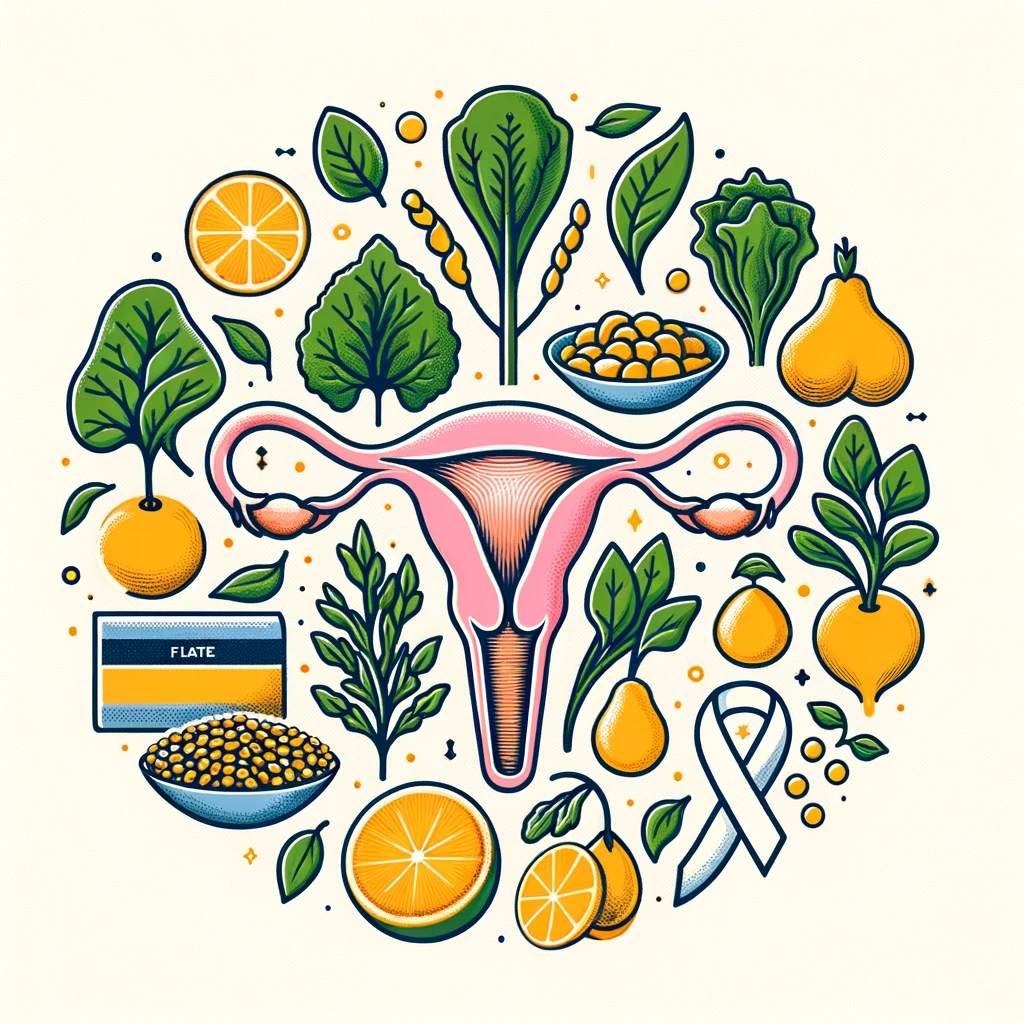Unlocking the Mystery of Cervical Cancer: The Vital Role of Folate
In a breakthrough study, researchers have unveiled a significant link between folate deficiency and the risk of developing a severe form of cervical precancer, known as cervical intraepithelial neoplasia grade 3 (CIN3+). This discovery, stemming from the comprehensive ASCUS-COL trial, offers new insights into the complex interplay between nutrition and cancer risk, particularly in relation to the human papillomavirus (HPV), a key player in cervical cancer.
The study meticulously analyzed the serum folate levels of women and cross-referenced them with the incidence of CIN3+ an advanced premalignant lesion in the cervix that usually progresses to cervical cancer. Folate, a B-vitamin naturally found in many foods, plays a critical role in DNA synthesis and repair. Its deficiency, as the study suggests, could significantly alter the body’s ability to maintain healthy cell growth, thus increasing the risk of cancerous transformations.
This connection between low folate levels and increased CIN3+ risk is a major stride in understanding cervical cancer’s etiology. It underscores the importance of adequate nutrition in cancer prevention and opens doors to potential new strategies in public health approaches and individual dietary choices.
The study’s findings are particularly crucial for women’s health. Cervical cancer, primarily caused by persistent HPV infection, remains a significant health challenge worldwide. By highlighting the role of folate in modulating cancer risk, this research emphasizes the need for adequate nutritional intake as a key preventive measure. It also suggests that monitoring folate levels could be an important tool in identifying women at higher risk for this cancer type.
This research, apart from its scientific significance, serves as a reminder of the intricate connections between our diet and overall health. It reinforces the concept that essential nutrients like folate are not just vital for day-to-day wellness but also play a pivotal role in long-term disease prevention.
The study’s implications extend beyond individual dietary choices, hinting at broader public health strategies. For regions or populations where folate deficiency is prevalent, this research could guide targeted nutritional interventions or fortification programs to reduce cervical cancer risk.
In conclusion, this groundbreaking study not only sheds light on the complex mechanisms underlying cervical cancer but also offers practical insights for prevention. As we continue to unravel the mysteries of how our diet impacts our health, incorporating these findings into public health policies and personal wellness routines could be a significant step in reducing the global burden of cervical cancer.
Reference
María C Agudelo et al. (2023). “Folate deficiency modifies the risk of CIN3+ associated with DNA methylation levels: a nested case-control study from the ASCUS-COL trial.” European Journal of Nutrition. DOI: 10.1007/s00394-023-03289-4. [Published online ahead of print, 21 December 2023].
Recent Blog Posts
-
 05 Apr 2024Prostate Cancer Early Detection: Addressing the Global Surge with EpiMedTech's Innovative Response
05 Apr 2024Prostate Cancer Early Detection: Addressing the Global Surge with EpiMedTech's Innovative Response -
 23 Mar 2024The Transformative Journey of Pregnancy: A Deeper Look into Maternal Biological Aging
23 Mar 2024The Transformative Journey of Pregnancy: A Deeper Look into Maternal Biological Aging -
 11 Mar 2024Unlocking the Connection Between the Gut Microbiome, Muscle Function, and Cognition in the Elderly: Insights from the PROMOTe Trial
11 Mar 2024Unlocking the Connection Between the Gut Microbiome, Muscle Function, and Cognition in the Elderly: Insights from the PROMOTe Trial -
 02 Mar 2024Turning Back Time with Your Fork: The Fasting-Mimicking Diet Unveiled
02 Mar 2024Turning Back Time with Your Fork: The Fasting-Mimicking Diet Unveiled -
 14 Feb 2024Understanding the Secrets of Bat Longevity: A Glimpse into DNA Methylation
14 Feb 2024Understanding the Secrets of Bat Longevity: A Glimpse into DNA Methylation -
 29 Dec 2023Redefining Alzheimer's Management: How Time-Restricted Feeding Aligns Body Clocks and Enhances Brain Health
29 Dec 2023Redefining Alzheimer's Management: How Time-Restricted Feeding Aligns Body Clocks and Enhances Brain Health -
 26 Dec 2023Unlocking the Mystery of Cervical Cancer: The Vital Role of Folate
26 Dec 2023Unlocking the Mystery of Cervical Cancer: The Vital Role of Folate -
 26 Nov 2023Unlocking the Secrets of Age Reversal: How Cutting Edge Research is Paving the Way
26 Nov 2023Unlocking the Secrets of Age Reversal: How Cutting Edge Research is Paving the Way




